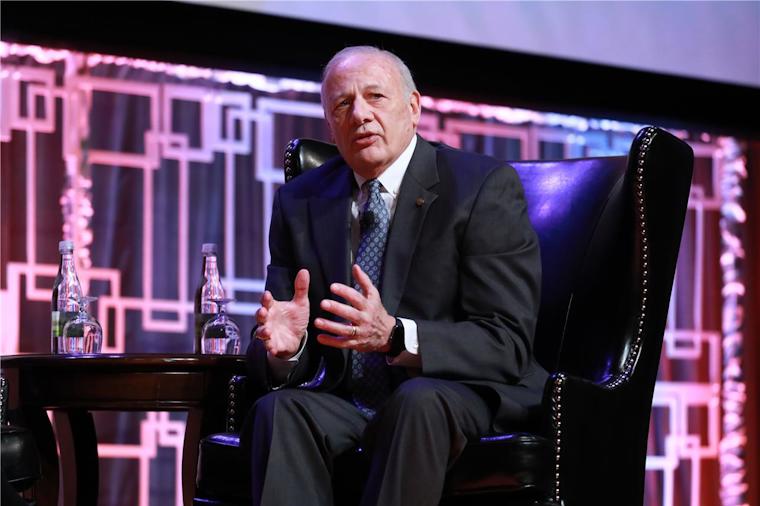When ACGME President and CEO Thomas J. Nasca, MD, MACP was a resident, admitting to burnout was verboten.
“It was not permissible to speak of it. If you spoke of it, you were weak, you were unable to cope, and so we all suffered in silence,” he said.
As a new academic year approaches, it is important to continue breaking the silence surrounding clinician burnout. During a highly emotional and personal panel discussion at the 2019 ACGME Annual Educational Conference in March, Dr. Nasca and colleagues from other national organizations in medicine discussed how burnout and self-doubt touched their lives. Influenced by those experiences and others throughout his career, Dr. Nasca has positioned the ACGME to help lead the charge to address physician well-being.
Burnout, depression, and physician suicide have profoundly shaped Dr. Nasca’s personal and professional perspective throughout his career.
“I’ve lost four residents, three medical students, and five colleagues prematurely,” Dr. Nasca said during the panel discussion. “The commonality of the residents and the students was malignancy and violence, and the commonality in the faculty was suicide.” One of those suicides was his mentor.
These personal losses, as well as evidence showing physician burnout reaching epidemic proportions, compelled Dr. Nasca to look for ways the ACGME could influence and counteract these trends.
In the last few years, the ACGME has established partnerships, projects, and initiatives to more comprehensively incorporate burnout mitigation and physician well-being support into the culture of graduate medical education. In 2016, the ACGME partnered with the American Association of Medical Colleges (AAMC) and the National Academy of Medicine (NAM) to co-chair the Action Collaborative on Clinician Well-Being and Resilience. The organization convened three Symposia on Physician Well-Being, bringing together experts and leaders from across the medical continuum to discuss issues and develop actionable solutions. It also leverages its members’ influence to create a healthier, safer medical community, and in 2017, revised Section VI of the Common Program Requirements, which focuses on the learning and working environment, to emphasize that psychological, emotional, and physical well-being are critical in the development of the competent, caring, and resilient physician. Those revised requirements went into effect July 1 last year.
As Dr. Nasca articulated in a June 2017 letter to the GME community, “The etiologies of the neoplastic and medical illnesses observed suggest that there is a chronic disease burden that exists or surfaces during medical school and residency that must be recognized…We must provide residents with the opportunity to receive the appropriate level of medical and surgical care required to live healthy lives. This includes physical and mental health, and dental health…[and this] may require evolution of our culture, where admitting needs or weakness has been often seen as a sign of lack of commitment. It also likely requires our willingness to permit our colleagues on the faculty to be treated in the same fashion. We must model the behaviors we wish to instill in our residents.”
In that same letter, he outlined specific strategies and interventions that can be implemented immediately, regardless of accreditation requirements. These include incorporating an emphasis on well-being into orientation/onboarding and during other transitions during the academic year, as entering house staff have been found to be at the greatest risk for suicide (see this study in Academic Medicine from 2017).
During his own tenure as a program director and designated institutional official, Dr. Nasca said he was expected to help usher others through their loss, with little support to help him make that happen. “I was expected to lead that healing with no preparation, with no understanding of what to do or how to do it,” he said.
Resources like the ACGME Tools and Resources for Resident and Faculty Member Well-Being, are now available to help program directors, coordinators, and designated institution officials, and others create healthier environments and systems, support colleagues and learners, and navigate the difficult waters if tragedy does happen.
Systemic change takes time, but now more than ever and armed with an increasing body of evidence, the GME community is poised to collectively make a positive difference in the lives of those it serves, from leadership to educators to learners to patients. Under the leadership of Dr. Nasca, the ACGME is taking deliberate steps to break the culture of silence and continue to build a new culture of compassion and support.
If you are in crisis, please call the National Suicide Prevention Lifeline at 1.800.273.TALK (8255), or contact the Crisis Text Line by texting TALK to 741741.

